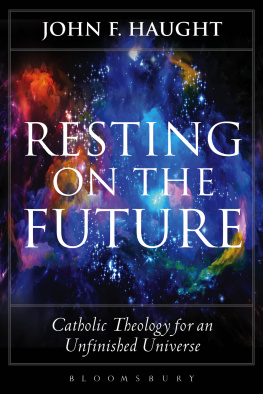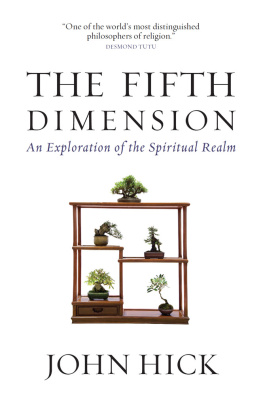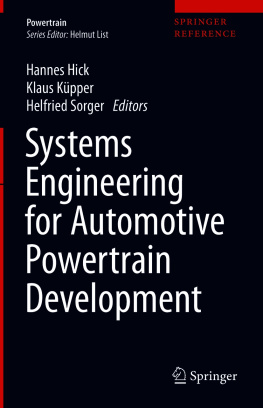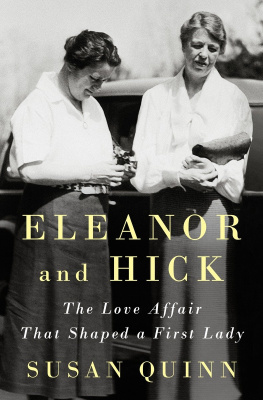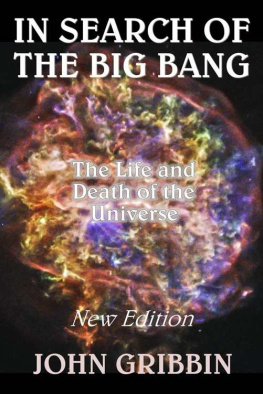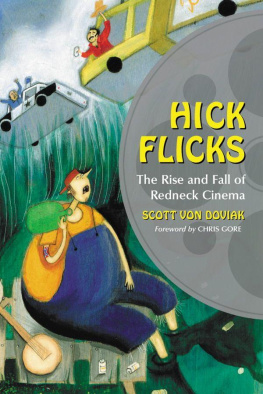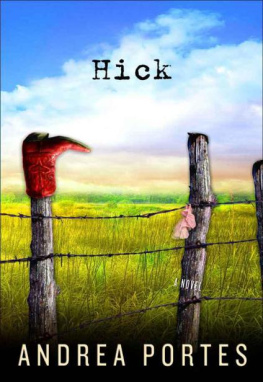John Hick and the Universe of Faiths
John Hicks contribution to religious studies has had a profound effect on modern Western theology. Chris Sinkinsons thoughtful and robust assessment of Hicks work is urgently needed. As we face the continuing challenges of religious pluralism, this book will enrich and encourage a new generation of orthodox scholars and believers to contend for the faith once for all entrusted to the saints. Highly recommended.
Steve Brady, Principal, Moorlands College, Christchurch
If youve heard of just one philosopher of religion, it may well be John Hick. Even if youve never heard of any philosophers of religion, you can almost guarantee youll have come across ideas about religion prevalent in our culture that have been influenced by Hicks thinking. He really is the godfather of religious pluralism.
In Chris Sinkinsons excellent book, the author not only describes Hicks pluralism but crucially excavates Hicks early commitments on the theory of knowledge which set the trajectory for his later radical theological revisionism and his interpretation of religion. Chriss analysis is a very clear and salutary reminder of how philosophical roots inimical to a Christian doctrine of revelation leads to a theological vision and a Jesus unrecognizable from healthy historically orthodox Christianity. I highly recommended this book.
Dr Dan Strange, Academic Vice Principal, Oak Hill College, London
I am delighted to see this fresh edition of Chris Sinkinsons critique of John Hicks work. Clear and readable, yet based on comprehensive research, it makes complex philosophical arguments simple, so that we not only get the point, but also see where it leads in terms of Christian faith and other faiths. With surgical skill, Sinkinson exposes the illogicalities and contradictions within the pluralist ideology, and indeed the arrogance that hides behind its popular plausibility. This book will be enormously helpful as a resource to Christians who choose to engage with the dominant pluralism in our culture, enabling them to do so with insight and understanding as well as grace and courage.
Christopher J.H. Wright, Langham Partnership
A vigorous, respectful, demanding and rewarding investigation of John Hicks philosophy and in particular his epistemology. Chris Sinkinson offers a helpful study of the embeddedness of all religious beliefs in tradition-specific cultural contexts. An important and prolific pluralist writer is, paradoxically, found to be insufficiently pluralist.
Howard Peskett, Former Vice Principal, Trinity College, Bristol
Readers will learn from this lucid, rigorous and challenging work. Whether they agree with his conclusion or not, they will have to rethink many issues regarding Christianity and other religions in the light of this book. Sinkinsons argument, approach and his epistemological investigation, makes this book an important contribution to Reformed theological approaches to other religions as well as a profound and persuasive argument against the pluralism of John Hick.
Gavin DCosta,
Department of Theology and Religious Studies, Bristol University
John Hick and the Universe of Faiths
A Critical Evaluation of the Life and Thought of John Hick
Chris Sinkinson
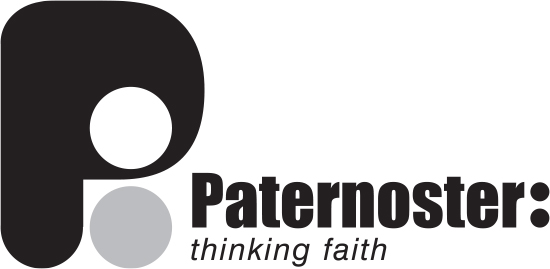
Copyright 2016 Chris Sinkinson
22 21 20 19 18 17 16 7 6 5 4 3 2 1
First published 2016 by Paternoster
Paternoster is an imprint of Authentic Media Ltd
PO Box 6326, Bletchley, Milton Keynes MK1 9GG.
authenticmedia.co.uk
The right of Chris Sinkinson to be identified as the Author of this Work has been asserted by him in accordance with the Copyright, Designs and Patents Act 1988.
All rights reserved. No part of this publication may be reproduced, stored in a retrieval system, or transmitted in any form or by any means, electronic, mechanical, photocopying, recording or otherwise, without the prior permission of the publisher or a licence permitting restricted copying. In the UK such licences are issued by the Copyright Licensing Agency,
Barnards Inn, 86 Fetters Lane, London EC4A 1EN.
British Library Cataloguing in Publication Data
A catalogue record for this book is available from the British Library
ISBN 978-1-84227-918-2
978-1-84227-919-9 (e-book)
Scripture quotations taken from the Holy Bible, New International Version Anglicised
Copyright 1979, 1984, 2011 Biblica
Used by permission of Hodder & Stoughton Ltd, an Hachette UK company
All rights reserved.
NIV is a registered trademark of Biblica UK trademark number 1448790.
Cover design by David Smart smartsart.co.uk
Printed and bound by CPI Group (UK) Ltd., Croydon, CR0 4YY
Contents
To my wife Ros, who has made faith and
life a great adventure
As a first-year undergraduate student in philosophy at Southampton University, John Hick provided a lifeline. I came across his slim volume, Philosophy of Religion , in its distinctive purple cover in the university bookshop and knew I had to read it. In comparison with many of the textbooks we had to read, this book had one remarkable quality: crystal-clear clarity. Hick had great understanding of his subject but also wrote with personal interest and a desire to clarify rather than confuse.
I read all of Hicks works that I could find and ended up pursuing a doctorate related to his work with Gavin DCosta at Bristol University. One theme stood out above all others. Hick was writing on the crucial issue of the Christian response to religious diversity, and in multicultural Southampton and Bristol it was hard to see a more pressing issue for Christianity.
I shared with Hick a personal conversion story as a late teenager but had never found his path to pluralism attractive. This book explains why. The more I considered his philosophical position the less attracted I was to it as a Christian. To really understand the problem in Hicks theology of religions we need to understand its roots. It grows not from his convictions about Jesus but from a certain kind of western philosophical tradition. As we consider Hicks life and development we find his pathway much less revolutionary than some think.
In trying to understand why this is the case, there is an opportunity to reflect on much more than the thought of a single scholar. In the growth of Hicks thought we can see a microcosm of the growth of much contemporary western theology. We move from an evangelical orthodox faith, through a liberal modernist view to a more radical minimalist religion. The roots of Hicks thought lie deep in the soil of Enlightenment thinking. As we chart the course of his development we find a map of the development of western theology.
Critics may complain that I have committed the cardinal offence of subjecting Hicks philosophy to a theological critique. Such critics wish to keep theology and philosophy quite distinct. It is unfair to launch a cross-disciplinary enquiry or so it is claimed. However, such an objection is a smokescreen. Hick clearly subjected theological ideas to philosophical analysis. Why should we not subject philosophical ideas to theological analysis? Who has the right to grant priority to one over the other? In reality there is no sharp distinction between theology and philosophy of religion, but they both dialogue with each other. This book is a dialogue between the history of theology and philosophy as they speak to each other in the work of John Hick.
In the opening to Hicks textbook on the subject he writes, Philosophy of religion is thus a second-order activity, standing apart from its subject matter ( Philosophy of Religion , pp. 12). Is this really possible? It depends on what the subject matter may be, but if the subject matter is our most important loyalty, our fundamental convictions, then surely not.



